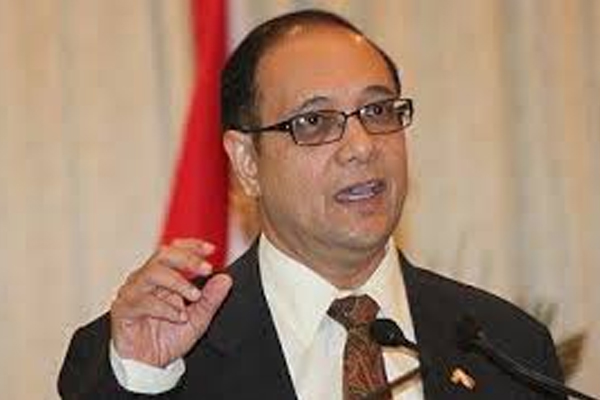Trinidad and Tobago’s sovereign credit rating reaffirmed
 PORT OF SPAIN, Trinidad — On Sunday, finance and economy minister, Larry Howai, confirmed that Moody’s Investors Services has reaffirmed Trinidad and Tobago’s Baa1 (medium grade/moderate credit risk) sovereign credit rating based on relatively high income levels, driven by the country’s large and diversified energy sector.
PORT OF SPAIN, Trinidad — On Sunday, finance and economy minister, Larry Howai, confirmed that Moody’s Investors Services has reaffirmed Trinidad and Tobago’s Baa1 (medium grade/moderate credit risk) sovereign credit rating based on relatively high income levels, driven by the country’s large and diversified energy sector.
The minister noted that Moody’s also based their evaluation on the expansion of the economy which, the analysts identified, was mainly due to the performance of the non-energy sector, given the significant maintenance work that had to be done in the energy sector over the past year. This expansion has been driven to a large extent by an aggressive fiscal stimulus program which was complemented by an accommodative monetary policy stance.
The Moodys’ report stated that the economy is expected to maintain a positive momentum into 2014 and forecasted growth of 2.9% in 2014, “further picking up to 3.2% in 2015, driven by increased exploration activity and foreign investment in the energy sector, as well as, public infrastructure projects.”
Moody’s noted too, that “The sovereign credit profile also benefits from a moderate and affordable debt burden and a very strong external position anchored by a sizable foreign exchange reserves buffer.” the report stated.
Moodys’ further classified government’s strength as being “Very High” due to its relatively moderate debt burden and comparatively high debt affordability.
The government’s balance sheet, which includes the country’s Heritage and Stabilization Fund, “a core financial institution to manage oil sector revenues”, which has accumulated a balance in excess of 20% of gross domestic product, was cited as one of the factors that contributed to the reaffirmation of the positive credit rating.
Howai noted that the rating confirmation underlined the success of the continuing efforts of the government to improve the quality of life for citizens, transform the economy, create new jobs and provide improved services without deteriorating the country’s fiscal metrics.
Regarding the downside risks identified by Moody’s, the minister stated, “I am fully cognizant of the issues raised by Moody’s on the fact that the economy remains highly dependent on the energy sector and the existence of infrastructure deficiencies as well as competitiveness challenges.”
He added, “We have commenced the process of bringing the fiscal accounts into balance and will close that gap further this year. In addition, we continue to focus on the deficiencies in our physical infrastructure as well as on the creation of a well diversified knowledge based economy. As such we continue our programme of physical upgrade of the nation’s infrastructure and are in aggressive pursuit of a portfolio of structural reforms that preserve fiscal sustainability, promote business competitiveness, and provide appropriately supportive regulatory environments.”
“Regarding the latter, government has prioritized a number of structural reforms to foster economic growth and promote economic diversification and business competitiveness. Government’s structural reform agenda has revolved around pension reform, doing business reform, public debt and cash management, investment promotion and the development of special economic zones, institutionalizing public private partnerships and a national broadband strategy.”
Moody’s assessment of the performance of the Trinidad and Tobago economy was conducted at the beginning of April 2014.

